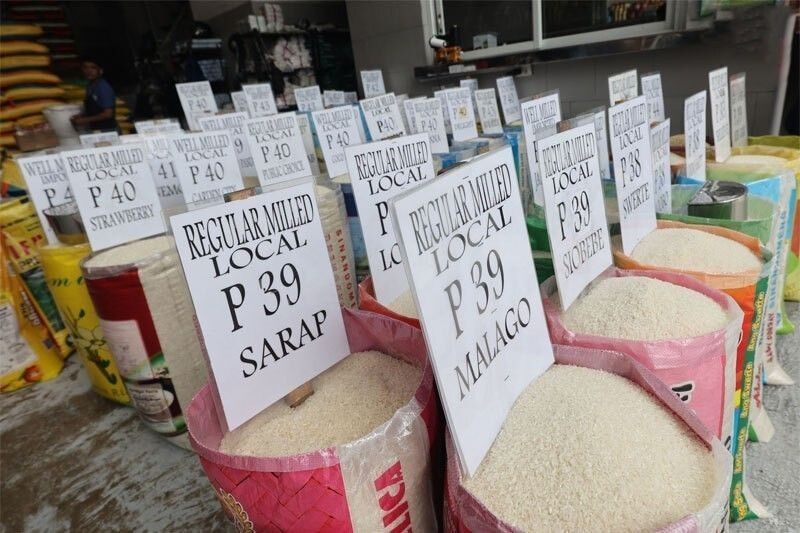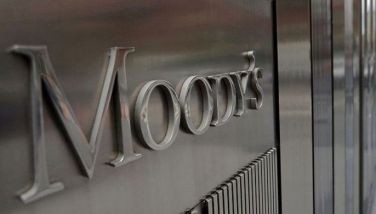P45 rice max SRP begins March 31 – DA

MANILA, Philippines — A maximum suggested retail price (SRP) of P45 per kilo of imported rice will be enforced starting March 31 amid declining global rice prices, according to the Department of Agriculture (DA).
“At this level, the retail price of imported rice has now decreased by P19 per kilo compared to its price before we implemented the max SRP on Jan. 20,” Agriculture Secretary Francisco Tiu Laurel Jr. said yesterday.
Before the max SRP’s implementation, imported rice was sold for P64 per kilo, he recalled.
Tiu Laurel imposed a max SRP after a 20-percent tariff cut failed to reduce rice prices.
Initially set at P58 per kilo on Jan. 20, the rice max SRP decreased to P55 per kilo on Feb. 5, P52 per kilo on Feb. 15 and P49 per kilo on March 1.
The Philippine Statistics Authority had recognized the max SRP as a key factor in reducing rice prices and helping to tame inflation, Tiu Laurel noted.
“In fact, the March inflation print of 2.1 percent was unexpectedly lower than both market and central bank predictions,” he said.
Global rice prices have dropped to their lowest levels in over two years, with some varieties now priced below $380 per metric ton.
Before the rice max SRP declined to P49 per kilo, Tiu Laurel said the price of five-percent broken grains from Vietnam had decreased to $490 per MT, approximately $200 cheaper than in December.
Vietnam is the Philippines’ main source of imported rice.
Data from Food Terminal Inc. revealed the landed cost of imported rice in March ranged between P32 and P34 per kilo.
Total rice imports from January to March 20 reached 737,149 MT, with the bulk, or 588,953 MT, coming from Vietnam.
Farmers’ suicide probed
Meanwhile, farmers’ reports of a widespread sale of P14 per kilo of palay are not fake news, former agriculture secretary Leonardo Montemayor said yesterday.
The DA on Monday tapped the National Bureau of Investigation (NBI) to probe incidents wherein three Nueva Ecija farmers reportedly took their own lives due to the ongoing slump in palay prices.
“What’s to be determined is whether their deaths were linked to low palay prices,” Montemayor told The STAR.
DA spokesman Arnel de Mesa said a probe is necessary to determine the cause of the farmers’ deaths.
“Based on the report of our enforcement offices and the report of the DA, there were deaths, but they did not commit suicide because of the low farmgate price of palay,” he said.
Tiu Laurel has urged lawmakers to pass a measure empowering the DA to address these issues.
“We are doing this with one hand tied behind our back. We need some of the National Food Authority (NFA)’s powers back – if not to the agency itself, then to the DA – to better address the challenges we face,” Tiu Laurel said.
“The NFA also needs additional resources to buy a larger volume of palay – around 20 percent of the supply – to influence market prices,” he added.
NFA administrator Larry Lacson has encouraged farmers in Ilocos, Cagayan Valley and Central Luzon to sell their harvests directly to the agency, which has raised its buying price to P19 per kilo of fresh palay in those regions.
The NFA in Bulacan has also advised farmers to sell to the NFA dry and clean palay instead of fresh palay grains to improve their profit margin by an average of P500 to P550 per 50-kilo sack.
De Mesa noted that Tiu Laurel declared a food security emergency to release the NFA’s rice stocks.
A measure must be passed allowing the NFA to intervene without needing a declaration of an emergency, he maintained.
The flooding of imported rice should not be blamed for the depressed farmgate price of palay, De Mesa said.
The Federation of Free Farmers has blamed the unlimited entry of cheap imports at low tariffs for the drastic drop in palay prices during the ongoing dry season harvest.
NFA powers
Malacañang yesterday expressed support for the DA’s proposal to provide the NFA more powers to sway rice prices as the government deals with the slump in palay prices.
Presidential Communications Undersecretary Claire Castro expressed hope that lawmakers would review the rice tariffication law since the NFA’s limited powers has caused problems.
“It would be good if the NFA is given the authority again. It lost the power to import rice. For now, everything the NFA and DA do have to go through local government units, they cannot go directly to the farmers,” she noted.
The Rice Tariffication Act of 2019 removed the NFA’s regulatory and import licensing issuance functions and limited its role to emergency buffer stocking of rice bought from local farmers.
It also allowed the private sector to freely import rice subject to a tariff.
Pork max SRP
Compliance with the max SRP for pork products has increased to 31 percent from 25 percent, the DA said.
Per the pork max SRP enforced since March 10, pork belly is set at P380 per kilo and pork shoulder is at P350.
As for “sabit ulo” or pig carcass, compliance with its max SRP of P300 per kilo went up to 25 percent from six percent, De Mesa said.
“This is good news... If the level of compliance for ‘sabit ulo’ increases, the level of compliance for the maximum retail price will also go up,” he said.
Tiu Laurel implemented the pork max SRP after retail prices reached as high as P480 per kilo.
The government may tap the NBI and Philippine National Police to go after violators of the pork max SRP, De Mesa said.
Chicken, egg prices up
The retail price of chicken has reached P240 per kilo, up by P20 per kilo in the past month, the DA said.
Retail egg prices, meanwhile, are also increasing amid diseases affecting chicken layers, the agency noted.
Citing a Bureau of Animal Industry report, De Mesa said the poultry industry is affected by infectious laryngotracheitis (ILT) and inclusion body hepatitis (IBH).
ILT is a contagious respiratory disease in poultry caused by a herpesvirus. IBH is a disease caused by fowl adenoviruses that leads to acute hepatic necrosis, with mortality rates up to 80 percent.
“These are not transboundary diseases and can be easily controlled,” De Mesa said.
Ranging between P7.40 and P9 per piece, De Mesa said retail egg prices will not reach as high as P12.
De Mesa blamed the high cost of eggs on the disconnect between the farmgate and retail prices.
Chicken prices will not reach P300 per kilo and there will be no egg supply shortage, he said. – Alexis Romero, Ramon Efren Lazaro
- Latest
- Trending































